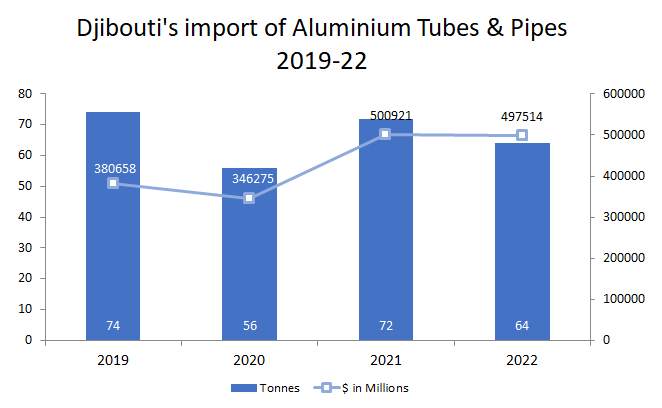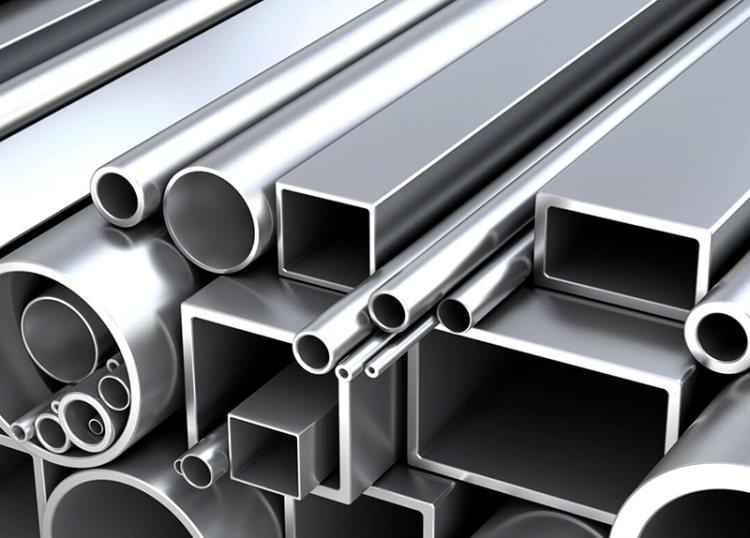

In the Horn of Africa, a nation named Djibouti has lately been classified as a low-middle-income country status. However, despite the recent economic development, the country’s poverty rates stand at 79%, with 42% of the population living in paramount poverty.
Djibouti provides a mixed economic system which incorporates a wide range of private freedom, blended with centralized economic planning and government regulation. It is a member of the League of Arab States (Arab League) and the Common Market for Eastern and Southern Africa (COMESA).
{alcircleadd}
The revoke of COVID-19 restrictions has smoothed Djibouti’s economic rebound in 2021 to an estimated 4.3%. Although the growth is projected to remain modest in 2022 but augment apace thereafter, the credit goes to infrastructure projects, diminishing the incidence of poverty from 14.7% in 2020 to an envisioned 12.4% in 2024.
The East African nation, Djibouti imported 202 tonnes of aluminium tubes and pipes during 2019-21, incurring revenue expenditure of around $1.22 million for the import. In 2019, the country’s aluminium tubes and pipes import was recorded at 74 tonnes, counting foreign income outflow of $380,658, whereas, in 2020, the import demonstrated a downfall by 24.32, as the import volume downsized to 56 tonnes due to the demand drop caused by the Chinese virus and the expenditure also slumped to $346,275.

The import of aluminium tubes and pipes by Djibouti in 2021 was recorded at 72 tonnes, a rebound in internal demand by 28.57%, as the import volume surged to 72 tonnes, while expenditure soared to $500,921.
Djibouti’s aluminium tubes and pipes importation in 2022 is analysed with a dip of 11.11%, as the import volume is anticipated to drop and remain at 64 tonnes, while the outflow of revenue to stand at $497,514.
The major trading nations for Djibouti’s import of aluminium tubes and pipes are China, Spain, and the USA.



Responses






